Not many people willingly sign up for a multi-week research cruise in freezing temperatures where fresh produce typically runs out after the second week at sea. But BIOS research specialist Becky Garley is excited at the prospect of returning to the Arctic for the third time next September 2022 as part of the Synoptic Arctic Survey (SAS).
BIOS Scientists Set to Participate in International Research Expedition to the Arctic
November 30, 2021
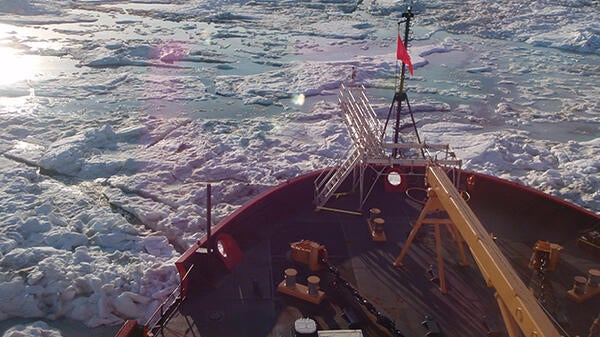
BATS, Big Data, and the Base of the Marine Food Web
November 29, 2021
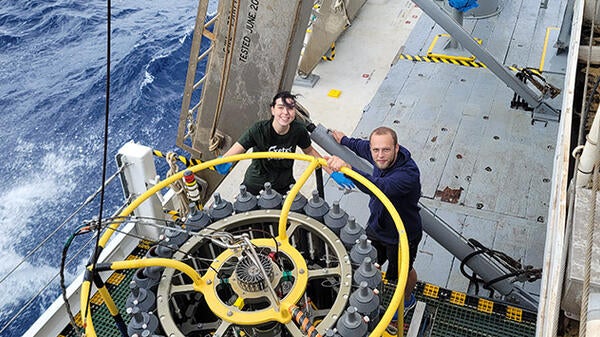
In mid-November, the BIOS-operated research vessel Atlantic Explorer headed into the Sargasso Sea for the eighth research cruise as part of the multi-year, multi-institutional BIOS-SCOPE (Bermuda Institute of Ocean Sciences – Simons Collaboration on Ocean Processes and Ecology) project. Since 2015, scientists from Bermuda, Germany, the United Kingdom, and the United States have converged at BIOS to investigate the microbial ecology of the Sargasso Sea and understand how organic matter (carbon) cycles within the marine environment.
A New Study of Tiny Organisms
November 14, 2017
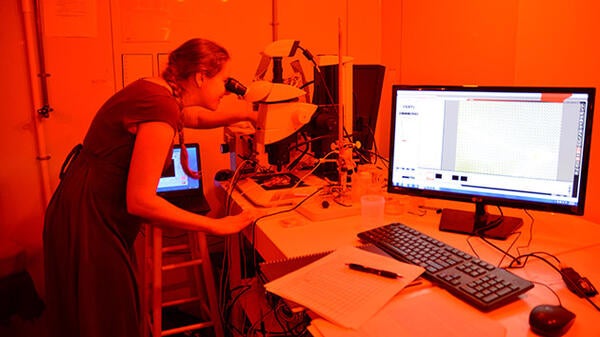
For her research at BIOS, Amy Maas studies one of the ocean’s smallest organisms—a delicate, shelled animal the size of a peppercorn, called a pteropod—which helps her understand current changes in ocean acidity. This month she began a collaborative research project focused on even smaller creatures—microscopic foraminifera, more commonly called forams—that help scientists understand how Earth’s climate has changed throughout history.
Exploring Dynamics of Reef Function
November 14, 2017
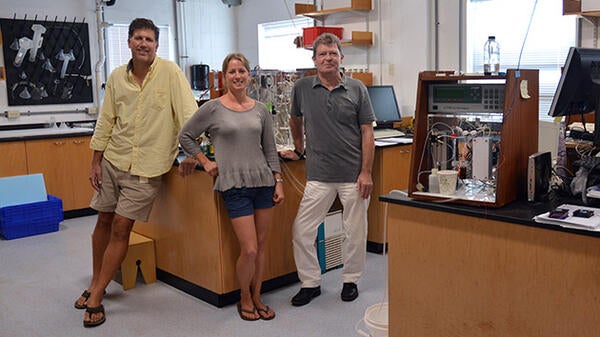
Coral reefs present scientists with a unique challenge. How do you accurately measure ecosystem processes—such as photosynthesis and calcification—within a system that changes over the course of a day and between days (depending on water flow, tides, sunlight, and weather, among other factors) and that also contains a variety of reef types and habitats (such as rim reefs, in-shore reefs, and deep water reefs)?
A Sea Journey of 22,000 Miles
November 14, 2017
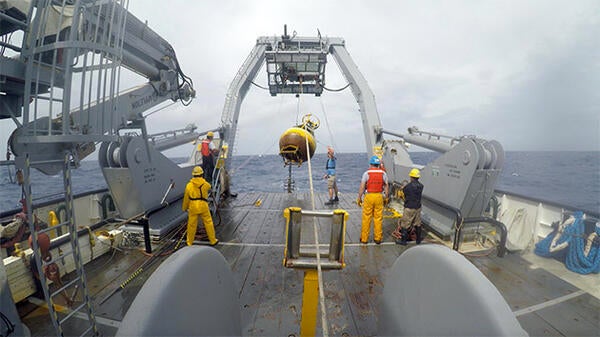
Oceanographer Neal Pettigrew is still piecing together the 1,392-day trip his runaway buoy made from the Gulf of Maine, which ended with its recovery on board the BIOS-operated research vessel Atlantic Explorer just before Halloween. But this much he knows: just by drifting freely over huge distances around the Atlantic, the buoy collected a remarkable amount of information about the ocean.
How About Lionfish For Lunch
September 30, 2017
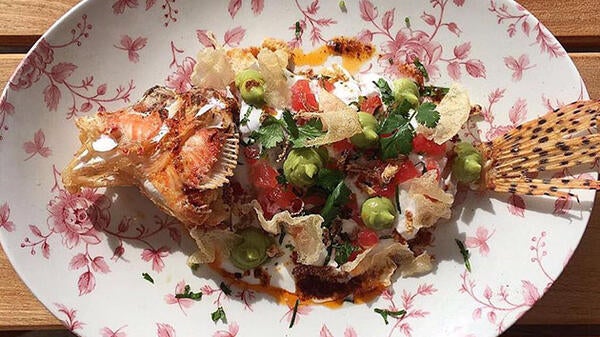
The quest to remove invasive lionfish from Bermuda’s reef ecosystem has taken a decidedly delicious turn. As part of a new research project led by BIOS coral reef ecologist Gretchen Goodbody-Gringley, fresh lionfish is now being delivered on a monthly basis to two island resorts and restaurants—Rosewood Tucker’s Point and Marcus’ Bermuda—as well as a local grocer, The Supermart Ltd.
On a Quest for Quiet
January 30, 2021
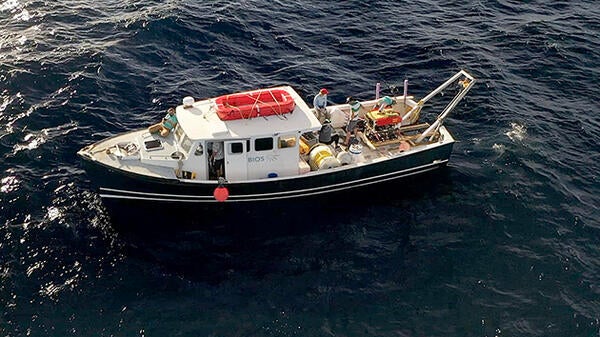
Oceanographer and ocean engineer Brennan Phillips runs the Undersea Robotics and Imaging Laboratory at the University of Rhode Island (URI) in Kingston, Rhode Island, where he and his students specialize in creating novel systems for oceanographic research and deep-sea exploration. He is also a familiar face at BIOS, having spent time at the Institute in 2019 testing the development of a controllable, miniaturized camera system for deep-sea exploration, called DEEPi.
When Saturdays Became Learning Days
January 27, 2021
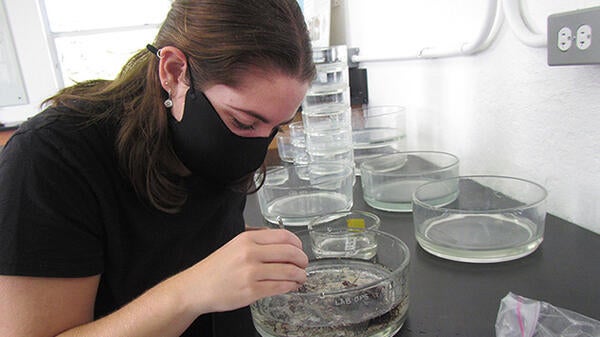
When the ongoing pandemic scuttled Maya Leighton’s plans this fall to attend a university overseas, she instead enrolled for a year at Bermuda College. There, a professor noted Leighton’s commitment to marine sciences and suggested a unique opportunity. How about spending Saturdays at BIOS, learning about coral reefs, marine microplastics, plankton, and mangrove restoration on island?
How about Studying this Summer in Bermuda?
April 13, 2017
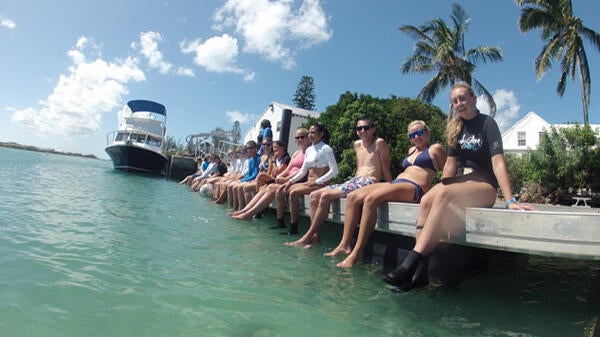
This summer, BIOS will offer courses in Modern Observational Oceanography, Coral Reef Ecology and a new course: Coral Reef Optics. Each course offers a unique opportunity for students to study abroad and conduct fieldwork in Bermuda’s marine ecosystems. Applications are due April 14. For more information, including how to apply, see the course flyer or visit /education/summer-courses
Working Around the Weather
March 13, 2017
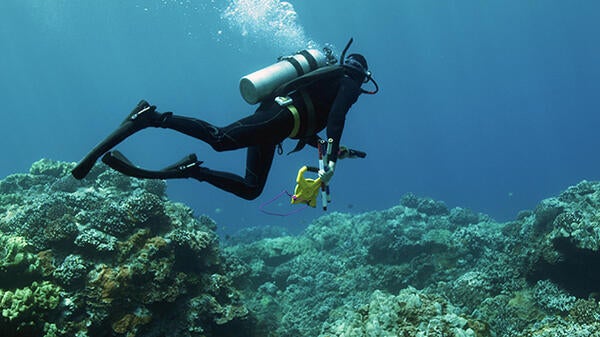
Understanding our planet and how it functions, as well as the impacts that human activities have on it, requires frequent and extended forays into the field to yield valuable data and observations. The COral Reef Airborne Laboratory (CORAL) investigation is a prime example. The three-year mission, funded by the NASA Earth Venture Suborbital-2 program, is conducting airborne remote sensing campaigns, along with in-water field validation activities, across four coral reef regions in the western and central Pacific Ocean.